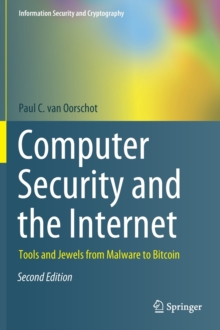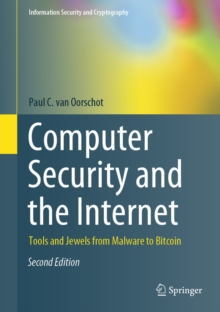
Cryptography in Constant Parallel Time PDF
by Benny Applebaum
Part of the Information Security and Cryptography series
Description
Locally computable (NC0) functions are "simple" functions for which every bit of the output can be computed by reading a small number of bits of their input. The study of locally computable cryptography attempts to construct cryptographic functions that achieve this strong notion of simplicity and simultaneously provide a high level of security. Such constructions are highly parallelizable and they can be realized by Boolean circuits of constant depth.
This book establishes, for the first time, the possibility of local implementations for many basic cryptographic primitives such as one-way functions, pseudorandom generators, encryption schemes and digital signatures. It also extends these results to other stronger notions of locality, and addresses a wide variety of fundamental questions about local cryptography. The author's related thesis was honorably mentioned (runner-up) for the ACM Dissertation Award in 2007, and this book includes some expanded sections and proofs, and notes on recent developments.
The book assumes only a minimal background in computational complexity and cryptography and is therefore suitable for graduate students or researchers in related areas who are interested in parallel cryptography. It also introduces general techniques and tools which are likely to interest experts in the area.
Information
-
Download - Immediately Available
- Format:PDF
- Publisher:Springer Berlin Heidelberg
- Publication Date:19/12/2013
- Category:
- ISBN:9783642173677
Other Formats
- Hardback from £44.99
- Paperback / softback from £82.95
Information
-
Download - Immediately Available
- Format:PDF
- Publisher:Springer Berlin Heidelberg
- Publication Date:19/12/2013
- Category:
- ISBN:9783642173677










